Cavin: Definitely eating! My hand went everywhere! I still could use my right hand to wipe my butt, but I needed assistance to bathe. I used a shower chair and a nurse would scrub me. Eating was difficult for a long time: From “Drawing a Map”
“My left hand had a pretty severe tremor as well. I spilled countless glasses of water, juice, or soda, and several cups of coffee. We realized that I needed food cut for me after I attempted to cut a steak and ended up tossing it on the floor.
I still had to pee at least once every hour as well. I had no strength to even hold my bladder. I remember numerous times while being driven, I would demand either my mom or John to pull over so I didn’t pee my pants in the car. We kept a wide mouth plastic bottle in my mom’s car in case of emergencies, and I filled up a bottle while my mom was driving numerous times every week. We constantly were trying to get wide mouth beverages for this very reason.”
Dressing was also an issue. I forgot all about doing therapy to re-train myself to put my clothes on. 🙂
OTinTraining: Thank you so much for your awesome answers!!! Hearing about how OT helped improve your life definitely reaffirms for me my choice in career!! Thanks again for answering my question, I’ll have to share all of your progress with my classmates!!
itoddicus: I also had (have?) an acquired brain injury, and made a recovery (I don’t want to say full recovery). Do you remember having a “Something is terribly wrong moment” after you regained consciousness?
Cavin: I would say have. It’s not like it goes away, and there is debate about whether neurons regenerate, but synapses can certainly be, and are constantly being, formed. I absolutely had a “something is terribly wrong moment,” but I don’t remember it and had to look at medical reports and ask my mom about it. At one point after my first coma I was unable to breathe. You can hear how much difficulty I had in this video.
When it got really bad, I told my mother that something was very wrong. The hospital staff was pretty busy so they kept sending residents up to check on me. These residents were patting me on the shoulder, telling me that I just needed to calm down, and feeding me anti-anxiety drugs. The chief resident happened to go by my room and he took one look at me and had me intubated (put back on life support) and put into an induced coma. Read more about it in this post of mine.
ShitiestOfTreeFrogs: Have you had any changes in your personality? Not just the changes brought on by the accident, but changes in personality b/c of damage. I’m not sure if this makes sense.
Cavin: At first, many of my friends and family told me, “you have changed.” I believe this is because I was in less control of my emotions. When something angered me, I used to be able to stop and think before lashing out, but I had lost my ability to control my temper. You know that feeling you get where your “blood boils?” I would feel that when something pissed me off, and was unable to stop myself from becoming belligerent.
I have since gotten so much better at controlling my temper. It is what my mother would call “Buddhist monk training.” I have gotten pretty good at letting things slide and accepting the things that I cannot change.
4ScienceandReason: These videos are amazing! What was it like after waking up from a coma? We’re you very aware? Did you have recurring comas for any reason? Thanks for sharing!
Cavin: Thank you! I had two comas. When I woke up from the first coma, I could not walk or swallow and my hand and foot were tonus (stuck in a flexed position) and unusable. After developing breathing problems, I was put into an induced coma and given steroids, which temporarily reduced the swelling in my trachea. I then woke up and was able to breathe again, but only for a few days when the swelling resurfaced, and I could no longer breathe. I had a tracheostomy performed, where I was breathing through a tube in my neck, but was then also unable to talk.
For 4 months I could not eat, walk, or talk, and my hand was unusable. I worked everyday to reclaim some normal abilities, and I still work everyday to maintain what I have regained.
judochop1: if you had never regained consciousness, or were left a vegetable, would you have gone down the euthanasia route? what’s your views on that?
Cavin: Wow! That’s a hot button topic that is very difficult to answer. I believe that freedom of choice should include the freedom to choose to exit this existence. I think that forcing people to live in pain when they would much rather say their goodbyes is oppression. I know someone who had a family member who’s mind deteriorated to the point where he was rubbing his own feces on the walls, but, despite his wishes to be “let go,” he was forced to continue to cause his loved ones pain and suffering, and to embarrass himself and to pile terrible moments onto his legacy.
That being said, if euthanasia were legal and accepted, I believe that it is INCREDIBLY IMPORTANT to have a TRUSTED medical power of attorney for situations like the one you described. Finding a trusted power of attorney is easier said than done, but someone would have to make that call, because a vegetable may be unable make life or death decisions.
ToniJabroni: How aware were you of what was happening on the way down? Did you have time to think “Oh shit” or anything else?
Cavin: That is a question I have been trying to answer myself. Here is my best answer from the first chapter of my book:
“I wish that I could tell you what thoughts went through my mind as I dove towards the ground, just a short moment before these memories were replaced with complete darkness. Perhaps I was scared. Perhaps my life flashed before my eyes as I crashed from one steel beam to the next, and it must have hurt like hell. But the truth is, I do not remember a thing. In fact, I do not remember a single moment of this entire day. The most defining moment of my life has been wiped away, and I am only telling this part of the story based on information that has been relayed to me by others.”
Kittygus1: Hey Calvin, your story is inspiring! My question is this: after the recovery what was the first meal you had/ first words you said?
Cavin: Good question. The first meal was the first restaurant I saw after getting the OK to eat. It was AMAZING to me, but apparently no one else thought so because the restaurant is now closed. :)After waking from my first coma, my first words were apparently “Get this sh** out of my mouth!” 🙂
ericpeffley: More details on the restaurant and first meal! The cuisine, the location, what you ordered… Was it good/bad? Could you finish it? Want to hear this awesome story.
Cavin: I love how much you recognize how important that moment was! As soon as I walked out of the doctors office after getting the OK to eat, there was a restaurant called Red Fish Blue Fish directly across from the hospital. From post:PEG Bored “There had been so much hype built up for my first meal, but when my mother and I walked out of Tamar’s office [who gave me the OK to eat!], I said “There’s a restaurant. That’s what I want.” It was a seafood restaurant and I had stuffed sole filet packed with crabmeat stuffing. It was delicious to me. Just about anything would have been. The restaurant closed the next month, but I was so happy that there was a restaurant there, but I didn’t care what it was. IT WAS FOOD!
Dr. Greenwald, my physiatrist (coordinator of all rehab care) while I was at Mount Sinai, had scheduled a gastroenterology (swallow, digestion, and elimination of food) appointment for me when I was discharged in July. Coincidentally and serendipitously, that appointment was scheduled for the same day!
After eating, my mother and I went to this appointment. When we walked into the office, the gastroenterologist was a petite girl who said something similar to what Tamar said “I’m not sure why you’re here.” My mom explained that I had just passed my barium swallow test and was cleared to swallow, so I no longer needed a PEG tube. The doctor checked my file, which did not reflect this yet. My mom made a call to Tamar’s office while we were still there and explained the situation to Tamar’s very helpful assistant, Kelly, who was aware that I had passed and entered it into the computer system right there.
The gastroenterologist saw it now, so she had the go ahead to remove the PEG tube. My mother and I thought that this would involve a surgery of some sort because a PEG tube is held in by a hard plastic balloon inside the stomach. The doctor said “lay down and pull your shirt up.” I did so with a puzzled look. I was in something like a reclining dentist chair. I asked if I could take a picture, and she waited for me to do so.
I’m not even exaggerating about what happened next:
The doctor grabbed the tube coming out of my stomach, wrapped it around her hand once or twice, put her foot on the reclining chair that I was lying in to brace herself, and said “Don’t move.” My puzzled look turned to fear and then agony as she tugged with all of her might. I began shrieking and I remember catching a glimpse of my mother with her hand covering her mouth, and an “oh my god” look in her eyes.
This agony continued for what felt like minutes, and then “pop”. The hard plastic balloon pulled through. It was so painful and intense! I was amazed and disgusted by what just happened. It was done with no anesthesia and was so crude and unbelievable to me. The hole began gushing blood immediately. She brought a gauze to me and placed it where the tube was and put a few pieces of medical tape over it. I no longer had a tube protruding from my belly. Just a bloody wound that would become my “second belly button.”
I had the worst stomach ache I had ever known for the rest of the day, but I ate like it didn’t hurt a bit. It was so cool that I could eat! Food’s kind of a big deal. We all eat… Well some of us have food poured into their stomach through a tube (hopefully temporarily), but still… We eat socially, we have family dinners, and we take each other on dates to restaurants. You can’t live without it, and you literally are what you eat. You are made up of cells that are created from nutrients from what you ingest. I could finally join the rest of the world and eat again. It was wonderful! The meals I would have would more than make up for the pain that I experienced that day.”
See the pics: Before1, After1, After2
FutureScientist: My brother was in a coma and unfortunately died. My question to you is… what was it like being in a coma? Did you dream? Could you hear people talking to you?
Cavin: I am so sorry to hear that. I hope that you become a scientist, and we can talk about this further if you’d like. Some people claim to dream things, but I have absolutely no memory of the comas. That time has been completely erased in my memory. Maybe my hippocampus (seat of memory creation) was not functioning. 🙂
tadddpole: When my father was in a coma for two moths, he had some weird things. He can’t remember vividly, but would occasionally be able to describe some of the crazy nightmares he was having for the two months. I can’t even imagine being STUCK in them. He also said that in the haze after waking up, he would perceive things happening around him, but still have hallucinations and nightmares about them.
Cavin: Was it anything like from my post Roid Rage?
“I remember feeling like I was being held captive and that the deranged hospital staff was experimenting on me. I was convinced that they must be feeding me all sorts of strange psychoactive drugs to test my behavior. It felt like a bad trip on a hallucinogen. I HAD to escape. When I got my hands on my catheter I took a deep breath and embraced for the pain. I didn’t know how much it would hurt, I only knew how sensitive that area is. The pain that followed surpassed my expectations, but my adrenaline was racing because I was convinced that my survival depended on escaping. I felt like THEY had done something incredibly tortuous to me and I was appalled that THEY were making me do this. I took the pain and pulled it out slowly so that I wouldn’t tear my penis up. I still can’t believe that I was so confused and terrified that I pulled my catheter out! Ouch!!!”
zakowar: How has the writing process been in the last year? Was it very difficult at the beginning? What kieeps you inspired?
Cavin: Writing may have been the most activity that I have been doing since my brain injury. It was, and is, extremely therapeutic, and I have healed so much from putting a narrative to the trauma that I experienced.
eisner_bbf: Hi Cavin! What changes, if any, did you make in your diet as part of your initial and continued rehabilitation? Do you still house a Mexican pie with Bleu cheese wing sauce?
Cavin: I’ll house a Mexican pie with Bleu cheese and wing sauce any day! I don’t eat gluten because of molecular mimicry, which may cause autoimmune reactions in the body and/or brain. I love food, but, after not eating gluten, feeling an enormous amount of clarity, and then reintroducing it, the effects were so profound that I sincerely do not want to have it.
If you would like to hear more about gluten and molecular mimicry, I would be happy to say more. 🙂
ettenyl: Can you explain molecular mimicry in your words? Thanks!
Cavin: Today’s gluten is not the same as it used to be. Today’s gluten is treated to create deamidated gliadin. This causes molecular mimicry in which, to put it simply, gluten messes with your brain’s communication between itself and the rest of the body. Most people think that a bad response to gluten is only in the digestive system, but more and more research shows it’s effects on the brain.
Gluten often causes an immune response in the body (and most gluten testing only tests for one of hundreds of the proteins in gluten). In the case of this immune response, the body looks at gluten as an invader and antibodies are made by the immune system to attack it. Because gluten is molecularly similar to the structure of certain body tissue, gluten seems to further “mimic,” or adapt other traits of body cells, which means that the immune system does not know the difference between gluten (the invader it attempts to attack) and certain cells within the body.
Because of this, the immune system mistakes self tissue for invaders that are “to be destroyed,” and attacks self tissue. It appears that, most commonly, this molecular mimicry is of brain cells, so this causes the immune system to attack the brain, which, in me, seemed to exacerbate my brain fog.
I hope that was understandable.
If you would like specifics on diet, see this post: Biology, Evolution, and the Brain
2ster: Speech Therapist here! Wondering if you had any speech therapy for the communication and/or the swallowing difficulties you mentioned? If so, what did you like about it? What didn’t you like? Any recommendations for speech therapists working with people who have brain injuries? Also, thanks for doing this AMA! Not only does it raise awareness, but it opens a dialogue between patient and therapist that might not otherwise be possible!
Cavin: I absolutely did and still do. I was diagnosed with dysarthria (slurred speech) and dysphagia(difficulty swallowing). I love speech therapy and still go. My swallowing difficulties force me to tuck my chin each time I swallow, but my dysarthria is hardly noticeable unless I am running on little sleep. Because the purpose of speech is to communicate, speech therapy ties into communication in general. I like this! I get to work on my communication skills. I work with my therapist to not only prevent aspirating (inhaling a food food or liquid), but also to organize my thoughts and ideas.
I did not like being prohibited from swallowing. I hated being told that I did not pass the barium swallow test(swallow test that shows swallowing mechanisms because bolus of food is stained to be visible in x-ray). I’m sure you don’t like telling anyone that they can’t eat. My recommendation is to be careful, but not overly cautious. I hated one speech therapist because she wouldn’t let me eat even though she did no assessment. This was insane. Here’s the story of that mess: Tastes Like Bad Medicine
Dr. Tamar Kotz, MS CCC-SLP is the swallow doctor that told me that I could eat again, and I LOVE her to pieces! If you would like, check out the story about the day I got that news: PEG Bored.
ManInTehMirror: Hey Cavin, Glad to hear you have recovered so well. You mentioned that, after the accident, the moment you could wrap your wrist around a guitar, you did. When you got a substantial amount of motor control back, how was your muscle memory affected? Could you remember how to play the same songs at all/partially? Were there other things that you found yourself able to do with ease, or that were surprisingly difficult?
Cavin: Hello, As I answered for chickenturd about my memory: I have no memory of an entire month of my life after my plummet. I have no memory of the day I fell. Those times have been replaced with complete darkness. When my memories first began, they are very vague at best. I was in a brain fog for almost a year after, so I have clear memories of an unclear moment in time. Today, I remember other times as well as most other people. I am very luck to not have trouble making new memories. Thanks for the question.
I have terrible motor control, but I try to play anyway! I have ataxia which is a neurological condition in which my brain does not communicate well with my left extremities. This is due to damage of my cerebellum. I cannot play like I used to at all, but I can strum some chords. Hear my music! I could remember what to play, but I could not translate my intentions to execution… Does that make sense? See this post if you want to read more about it: Musician’s Friend
Cheers!:)
linzzzzz: What do you remember the most about the nurses, doctors, physiotherapists, & other support staff working in the hospital? What made the biggest difference for you? What sort of negative impact (if any) has been left upon you by medical professionals? As a newly graduated nurse, I am curious about how I can make a meaningful impact in people’s lives when they are going through traumatic situations.
Cavin: First of all, your questions are admirable. I wish more nurses shared your curiosity and goals to make a meaningful impact. I remember certain nurses being fun, sweet, caring, and friendly, but I also remember being ignored and being treated as less than human by other nurses. When I couldn’t talk, I would mouth words to communicate and all of the nurses would read my lips and be able to understand and communicate… Except for one. There was a nurse who would ask me a question and look elsewhere when I answered. She would then look at my friends with annoyed and seemingly hopeless eyes and ask them what I said. I would get so angry! Now, when I think about that nurse I feel bad for her, because she obviously did not enjoy her work, and felt as if everything was a pain for her. I don’t think that nursing, or the medical profession in general, is for someone who does not possess the interest in helping people. But you clearly possess this.
While I was in a coma, the first CT scans did not show the extent of my brain injury, so the doctors saw no reason why I would not wake up. Apparently, a doctor was pounding on my chest in an attempt to wake me when my friend, Lyndsay, pointed out that I had cracked ribs. He apparently threw up his hands and dismissively said “fine, you wake him up!”
Despite the time that I spent with these nurses being the worst months of my life, the positive experiences that I had with my nurses meant so much at the time, and, in retrospect, mean even more today. A huge thank you goes out to Pinky (Josephina), Mara, and especially Joy Romanavich and Paulina for being incredibly sweet to me and my friends and family! They all made a huge difference in my life, and I hope that we stay in touch!
And thank you again, linzzzzz, and good luck!
aswokei: I’m here making this comment because you promoted the Kickstarter on a vision therapy for adults Facebook page. Based on the video you made, it looks like you sustained axonal damage or something related to vision. Is that something you can elaborate on? You mentioned stuff about vision therapy. Do you have visual impairment?
Cavin: I am so glad that you asked! I have diplopia (double vision) and I do have axonal damage, but I was not aware axonal damage was specifically related to vision. Please enlighten me because I cannot elaborate on that. My understanding is that, since my brain injury, I have fourth nerve palsy, meaning that the fourth cranial nerve of my brainstem is partially paralyzed. This has caused my brain to communicate poorly with the superior oblique muscle in my right eye, which partially controls both vertical and lateral movement.
I have been studying medical neuroscience and surrounding myself with brain injury because I am more than just curious about how the eye and brain function. I believe that vision therapy is beneficial for the entire brain and I speak about this often. Here is a podcast that I was recently in where we talked a lot about vision therapy: “Stories from the Brainreels”
Thank you so much for asking. Please tell me more about how axonal damage specifically relates to vision and tell me about yourself. I’m looking forward to your response. 🙂
aswokei: so you have double vision now… that means that you lost 3d stereo ability, right? Hopefully with vision therapy you’ll gain ability to access that superior oblique.
The reason I’m a part of that vision therapy for adults group is because I have strabismus (misalignment of the eyes). This means that I, like you, have diplopia, because my eyes don’t point at exactly the same spot in space. I’m undergoing vision therapy to fix this. I’ve been doing it for around three years, and I’ve gained some low-resolution stereopsis as a result. I’m pretty confident that if I continue going, I will have full stereo vision like most people. Now that I have a vague idea of what I’m doing with vision therapy (after three years!), progress is moving along at a brisk clip.
I really don’t know too much about axonal damage. I know what an axon is. I imagine that in your case, it pertains to the axon of a motor neuron that controls the superior oblique. But I know that vision axons are incredibly long, since they have to connect the retinal cells where they bundle up into the optic nerve and connect to other regions of cells. So it doesn’t relate too much with my visual condition. Mine visual condition is just about rewiring my brain to use my other eye. So I have no damage, just a need to do some reprogramming.
Btw, I noticed that you live in Austin, TX. So do I! Do you have talks around there? I’d like to check it out.
princess_vogeltron: In the video of you scooting outside the first time you look exceptionally badass! arrgh Question: What was the main thing in recovery that was the most confusing/hardest to grasp the concept of (like matching color names, sequencing, math skills etc) and did your hobbies or interests change? Thanks for doing the AMA, its so interesting and informational!
Cavin: Thanks. I like looking badass, which is why I love the picture that I plan to use as the book cover. This one is pretty badass too… What do you think? Which one do you like Conceptual challenges that were difficult had to do mostly with word math problems that would not only test my math skills, but my comprehension, organization, understanding, and execution of a problem.
Basically, I think that I was able to grasp most conceptual ideas, but my difficulties were/are more involved in motor control. My hobbies have evolved (I guess is the word). Because I cannot run or play sports (which I never liked that much anyway), I am pretty interested in learning how to golf… And I need to go bowling sometime. 🙂
Thank you, princess!
zomgrei: Cavin, I know this is super late, so I don’t really expect an answer, but my curiosity has the best of me here. How is your outlook on life? I know that I have a rescue dog that had been through a lot (parvo, coccidia, a hernia, pneumonia) and he has this incredible zest for life and outrageous happiness about him. I’m certain it’s because he’s just happy to be alive! Has this incident colored your world, so to speak?
Also, thanks for doing this AMA. It’s super inspirational. Any tips for a new and aspiring guitarist? 🙂
Cavin: Life is certainly a gift to be cherished! I felt that way before, but more so now! Music is one of the most incredible things that humans began doing! The more I learn about the brain and brain plasticity the more I feel like good musicians are brilliant because they have worked so hard to generate synapses in the brain to play so well.
Synaptogenesis is the forming of new connections within the brain. This takes time and rest. The best tips that I can give are to play everyday for only a few minutes. I play everyday for at least one minute. It’s not about how long you practice each time as much as it is about that you practice each day.
I still do a chromatic scale up and down everyday at the very least. It takes only a few seconds. You would be amazed how much your brain develops the skill! Here’s a quick video.
I am not at all the quick anymore, but I do it at my own pace everyday (and I only go to the 4th fret on the high E string before going back down because the ataxia that I experience makes it very difficult to move my arm AND my fingers to an accurate place on the neck). Do that everyday! See this post about musicianship and why it is incredible: Musician’s Friend *”Playing an instrument, you intuitively gain an understanding of how the brain learns. I truly believe that playing guitar prior to my accident was invaluable because it taught me perseverance and patience: useful tools in such an uncomfortable state of inability.
I hadn’t yet become fully appreciative of the fact that I could remember what to play, or developed a full understanding of the amazing things that were happening for me when I was in such need.
I had sustained shearing to my brain, which is very serious damage. The shearing was particularly to my corpus collosum which networks communication between the left and right hemispheres. I also had a hypoxic stroke which severely affected my cerebellum. The cerebellum is one of the main areas of the brain that orchestrates fine motor skills, and “muscle memory”. It showed the most symptoms of being damaged through my ataxia, my inability to walk, and how my left wrist and fingers were stuck in a bent position as if I was trying to touch my left forearm with my left fingers for months. After months of therapy and working on positioning my hand since the accident, I was finally able to wrap my hand around a guitar.”*
4ScienceandReason: What was regaining lost skills like? Infuriating? Claustrophobic? Do you have tips for other TBI survivors?
Cavin: Claustrophobic is an incredible way to describe what it was like. It was like my body was a vessel that I was trapped in, as we all are, but I could not longer control this vessel. Especially my left extremities. Regaining skills was exciting, but the motor skills seem to have plateaued. Neuroplasticity is the brains ability to change and rewire itself, which is exactly what needed to happen in order for me to recover normal function after the connections within my brain were severed in some areas, and damaged in others. They say “neurons that fire together wire together” and that principle seems to be how organisms learn to do anything new, and if a skill is forgotten, to regain an old skill.
To put it simply, we do not know enough about the brain to have a specific treatment for each diagnosis. I imagine the neurons in my brain like plants. If you see a wilting and sick plant, you don’t need a degree in botany and a diagnosis to nurse it back to health by giving it sunlight, water, and good soil. Same with the brain. We don’t know A LOT about the brain, but if we can support the environment that the neurons are in (glia), then the neurons can thrive and the brain seems to be able to heal.
Doing the AMA was addicting and exhilarating. Not only was everyone respectful and genuinely interested, but they brought real and honest questions, their own personal stories, and amazing insights to the interview. I was surprised by the amount of people who were close to someone who survived a TBI, or were a survivor themselves. Also surprising was the amount of medical practitioners who came by to get a chance to better relate to their patients. Lastly, I need to thank several of my friends for helping to make the AMA possible and for helping spread the word once we got started. It was three straight days of hard work and I couldn’t have done it without them!
![]()
![]()

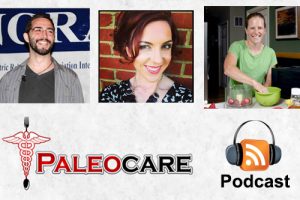
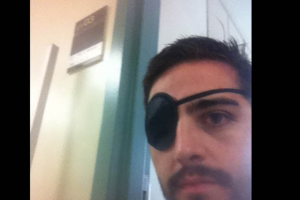
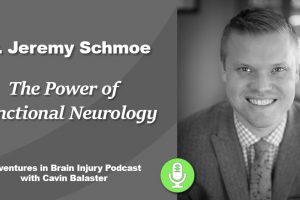
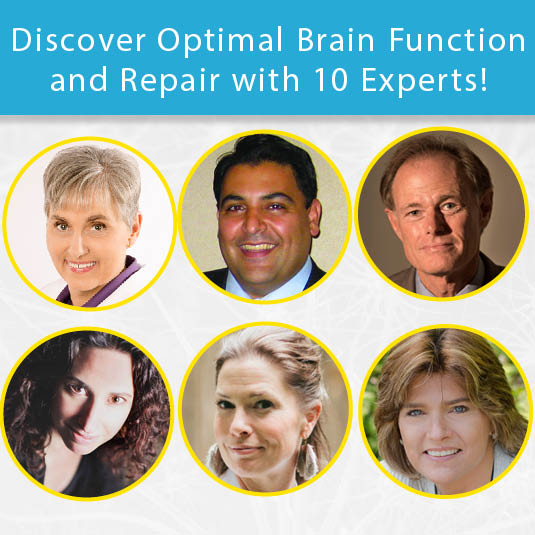
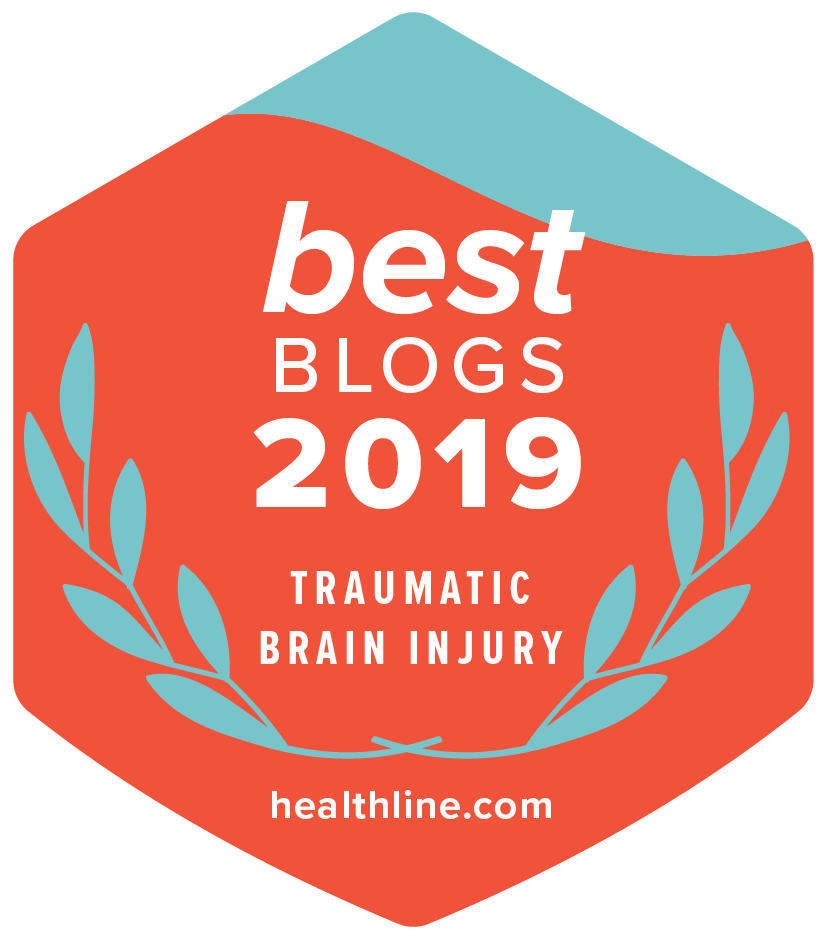
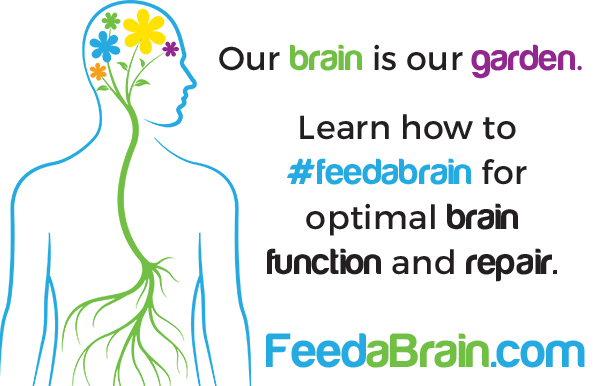
4 Comments
Leave your reply.